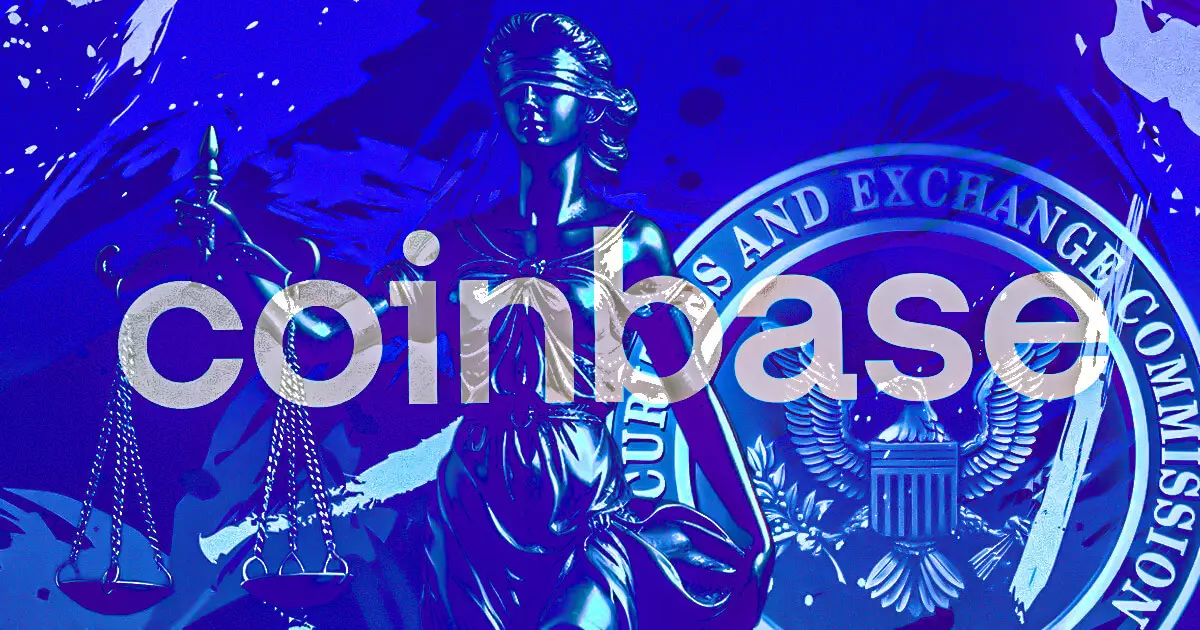In a significant move that could reshape the landscape of cryptocurrency regulation, Coinbase has secured an agreement with the Securities and Exchange Commission (SEC) to dismiss the enforcement case against them, pending regulatory endorsement. This development has rejuvenated Bitcoin’s market value, pushing it back above $99,000. However, this resolution is not merely a victory for Coinbase but poses critical questions regarding regulatory authority and the future of digital asset classification.
The recent legal battle between Coinbase and the SEC began with the latter’s attempts to force the company to delist certain assets. Coinbase CEO Brian Armstrong has been vocal about his belief that this move represented an overstep of the SEC’s clearly defined regulatory responsibilities. Armstrong characterized the SEC’s actions as not only misguided but as an infringement on the operational integrity of the cryptocurrency market. The legal tussle that ensued was rooted in a larger debate about whether digital assets should fall under the current classification of securities—a notion that Coinbase vehemently opposed.
In an optimistic tone, Armstrong indicated that he anticipates a formal dismissal of the case as soon as next week, once the agreement is ratified by the Commission. He highlighted that the settlement would incur no fines or impose changes to Coinbase’s business model, indicating a potential precedent in the broader fight against regulatory ambiguity.
While the agreement appears favorable for Coinbase, it casts a long shadow over how the SEC may approach crypto entities in the future. The legal proceedings, which entailed extensive expenditure on legal defenses and resource allocation, were not solely about defending a corporate strategy. They represented a more substantial ideological conflict between industry compliance and regulatory interpretation.
Armstrong’s public remarks emphasized the significance of this case as a hallmark for other firms in the cryptocurrency space. He argued for an industry framework that remains loyal to legislative intent rather than being shaped entirely by regulatory mandates. Commenting on social media, he suggested that the case’s outcome affirms the ability of firms to uphold legal principles against aggressive regulatory interpretations. By challenging the SEC’s stance, Coinbase has arguably set a precedent not only for itself but also for other cryptocurrencies facing similar specters of regulatory scrutiny.
Fascinatingly, Armstrong took the opportunity to express gratitude towards the Trump administration, attributing a significant component of the favorable resolution to the political climate surrounding crypto regulations. He noted the departures of key figures like former SEC chair Gary Gensler—characterized as having orchestrated aggressive sanctions against digital assets—indicating a shift in the regulatory paradigm, which could foster a more amenable environment for innovation in the crypto sector.
However, this political angle does highlight the intricate interplay between regulatory practices and governmental influence—an area rife with implications for future legislative adjustments. The recent conflict serves as a reminder of the ongoing tension between industry stakeholders and regulatory bodies, each vying for influence in a rapidly evolving space.
Though the case’s dismissal is a critical milestone, it does not completely eliminate the ambiguity surrounding cryptocurrency regulations. The resolution could serve as a catalyst for future legislative efforts aimed at providing clearer guidelines on how digital assets should be classified and governed. Key industry players argue that such clarity is essential for encouraging innovation while safeguarding the interests of consumers.
As the dialogue between regulators and cryptocurrency companies evolves, the Coinbase settlement will likely be referenced in future disputes regarding the legal interpretation of digital assets. It exemplifies the broader struggle to define the operational parameters within which cryptocurrencies can thrive without stifling market participation.
While Coinbase’s recent settlement with the SEC marks a pivotal moment for the cryptocurrency industry, it also calls attention to the pressing need for clear, enforceable regulations. The agreement serves as both a resolution to an arduous confrontation and a reminder of the complex dynamics at play in the realm of crypto regulation. As stakeholders reflect on these developments, they are challenged to recognize the importance of establishing a balanced framework where innovation can flourish alongside consumer protection.



















Leave a Reply